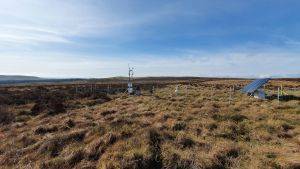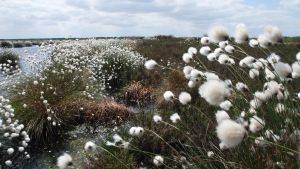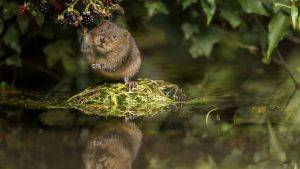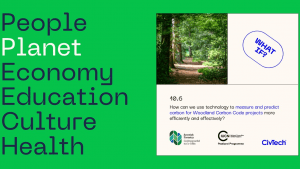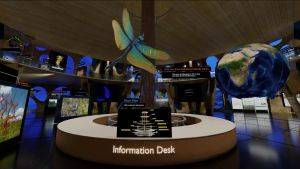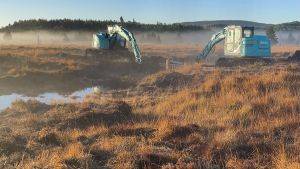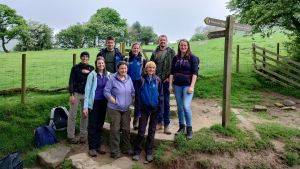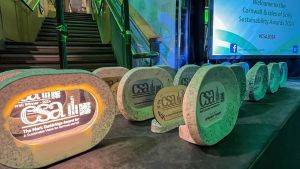Halting erosion of dry coastal peat
Introduction
The Falkland Islands have the largest peat resource (approximately 5,500km2) of all the British Overseas Territories and all island groups globally. Peat has formed slowly in the dry, cool climate and now covers most of the islands in some form. The focus of this restoration project is the dry, deep (some over 10 metre) coastal peatlands that are largely formed and dominated by the tall, tussock-forming grass Poa flabellata. The resulting habitat, Tussac, helps prevent coastal erosion, harbours significant bird and insect populations and, when properly managed, provides a valuable and sustainable winter forage resource for livestock.
Description
It is estimated that the area covered by Tussac has decreased by over 80% since human habitation. This loss has occurred largely through a combination of inappropriate grazing, fires, and wind erosion. The loss of Tussac affects both biodiversity, and farming, where properly managed Tussac can be integrated with adjoining poorer quality heath communities. It was recognised that to conserve these areas, grazing control and replanting were essential. Research indicated the most appropriate way to restore Tussac was to plant out propagated seedlings of Poa flabellata (rather than sow seed directly) which then increases its cover by tillering.
Restoration Delivered
Good publicity for Tussac restoration was generated through interviews for the local radio and television. This significantly increased the amount of support provided by Falkland Islanders. A hare-proof fence was also erected within the Tussac planting site. In areas where Tussac peat has been too severely eroded, other native colonists are being trialled to provide soil stabilization. This latter work has been made possible through the recently (2009) established native plants nursery set up in a novel collaboration between FC, Stanley Nurseries and the Royal Botanic Gardens Kew. There is a commitment in principle from FIG to continue to fence and aid restoration of all eroded peat areas along the south side of the Cape Pembroke NNR.
Site Activity
Over 70% of land in the Falkland Islands is privately owned making it vital that landowners realise the value of restoring Tussac along their coastlines. To increase awareness of this important resource, Falklands Conservation (FC) has set up a restoration site on the most visited local National Nature Reserve at Cape Pembroke, near the capital, Stanley. The Falkland Islands Government (FIG) agreed to fence off a section of the south coast from horse grazing, and a full programme of restoration of eroded coastal peat has been established. Replanting is being carried out entirely by local volunteers and FC staff, and the site will be monitored long term by FC’s youth group.
Project Name: Halting erosion of dry coastal peat
Organisation / Lead partner: Falklands Conservation
Predominately: Upland

